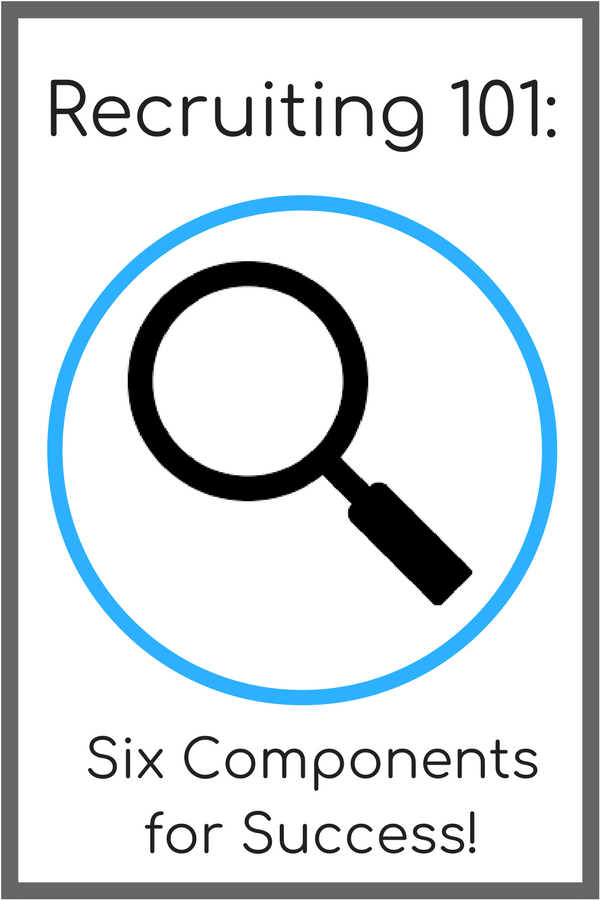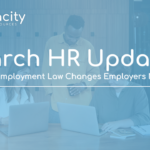2020 is now firmly in the rearview mirror. Challenges and changes continue to impact our lives personally and professionally. Here are critical HR updates all employers need to know and understand.
Critical HR Updates: MN Supreme Court Case Impacts Employers
A recent decision (Feb 3, 2021) impacts employers in MN regarding employee handbooks and contractual language.
Please reach out for assistance in reviewing your handbook regarding these important updates.
Critical HR Updates: Families First Coronavirus Response Act (FFCRA)
The Families First Coronavirus Response Act (FFCRA) sunset on 12/31/20.
However, the Consolidated Appropriations Act (signed by Trump at the end of December), made the EPSL (Emergency Paid Sick Leave) and the EFMLEA (Emergency Family and Medical Leave Expansion Act) voluntary after 12/31/2020 until 3/31/2021.
If an employer voluntarily extends the EPSL or the EFMLEA, the federal government will continue to reimburse the employer the payroll tax credit.
FFCRA Info
As a reminder, the FFCRA had two major provisions: EPSL and EFMLEA. EPSL required up to 80 hours of paid sick leave for full-time employees (pro-rata rules applied to part-time employees) for six specific COVID related reasons. EFMLEA covered employees who were unable to work (or telework) because the employee was caring for their child because of school closure or childcare provider unavailability (due to COVID).
Employer Takeaway
If employers decide to continue to grant this paid leave for eligible employees, they would continue to receive the tax credits. The decision is completely voluntary and employers have the option to continue one, both or neither. If employers choose to extend the leave it is just a continuation, i.e. the allotment of paid time off did not “reset” on January 1st.
Critical HR Updates: COVID-19 Vaccinations
An especially hot topic is whether employers can require employees get the COVID-19 vaccination. The EEOC (Equal Employment Opportunity Commission) issued important guidance: employers may require COVID-19 vaccinations, but policies must comply with the Americans with Disabilities Act (ADA), Title VII of the Civil Rights Act of 1964 (Title VII) and other workplace laws.
Employers with labor union workers should carefully review the language of the collective bargaining agreement to identify whether requiring vaccinations may be considered a mandatory subject of bargaining.
Interestingly, according to research from the Society for Human Resource Management (SHRM), the majority of employers (61%) intend to encourage, but not require, their employees to get the vaccination.
Critical HR Updates: Independent Contractor
The Department of Labor (DOL) issued a final rule on January 6, 2021 clarifying independent contractor versus employee status under the Fair Labor Standards Act (FLSA).
Although the rule is expected to be effective on March 8th, employers should stay tuned for potential changes under the Biden administration.
The intention by the rule is to reduce worker misclassification, as reported by the Wage and Hour Division of the DOL. Employers have struggled for years with legal ambiguity around proper classification of independent contractors, grappling with the application of factors and facing significant legal risk for misclassification.
The Biden Administration has asked all federal agencies to freeze proposed regulations and those with pending effective dates—which includes several workplace rules, including the Independent Contractor rule. Regulatory freezes are commonly imposed by an incoming presidential administration. The freeze will give Biden’s leadership team time to review rules that were announced in the final weeks of the Trump administration and to withdraw rules that were not finalized.
Critical HR Updates: MN Minimum Wage
The Minnesota minimum wage increased effective January 1, 2021. The large employer minimum wage increased to $10.08 per hour (from $10.00). The small employer limit increased to $8.21 per hour (from $8.15). A large employer is any enterprise with an annual gross revenue of $500,000 or more. Don’t forget to also update the required Employment Law Poster.
Critical HR Updates: OSHA 300A
Friendly Reminder About Posting 300A: if the recordkeeping requirement applies to the organization, the OSHA 300A Summary of Work-Related Injuries and Illnesses log must be posted from February 1 – April 30, 2021 (2020 injury/illness data).
If you have no idea what this means or whether this requirement applies to your business… please reach out.
Stay Tuned: More To Come
With employment laws rapidly changing and evolving, it is critical for employers to stay updated on how these changes will impact their employees, operations, and policies.
For more insight on important workplace topics, read our blog post here!
About the Author
HR thought leader, Stacy Johnston, provides innovative HR solutions with a mission to support organizations in understanding and engaging their biggest competitive advantage… their employees. Johnston writes and speaks about contemporary HR topics. She is a licensed attorney and holds the SHRM-CP and PHR credentials.

Interested in ongoing HR expertise, compliance assistance or more HR tips?
Check out our online resources or reach out to us for a free and confidential consultation at info@audacityhr.com
Resources
Looking for training resources? Check out our online options!







